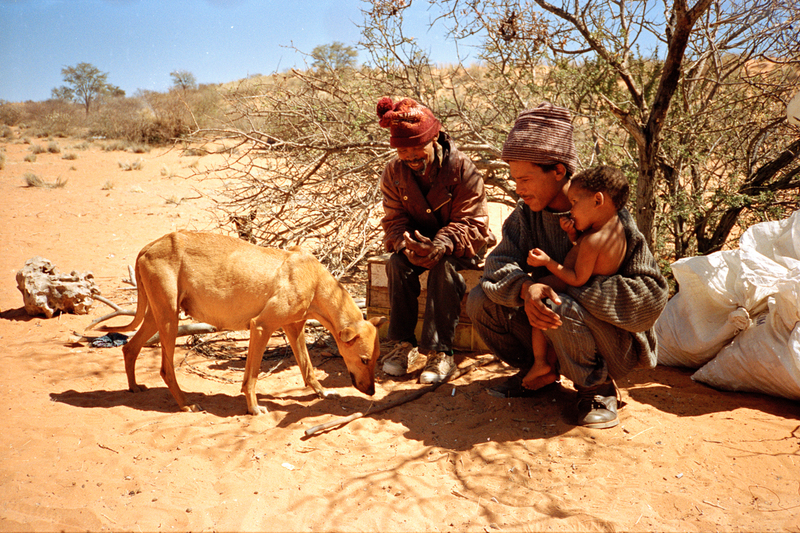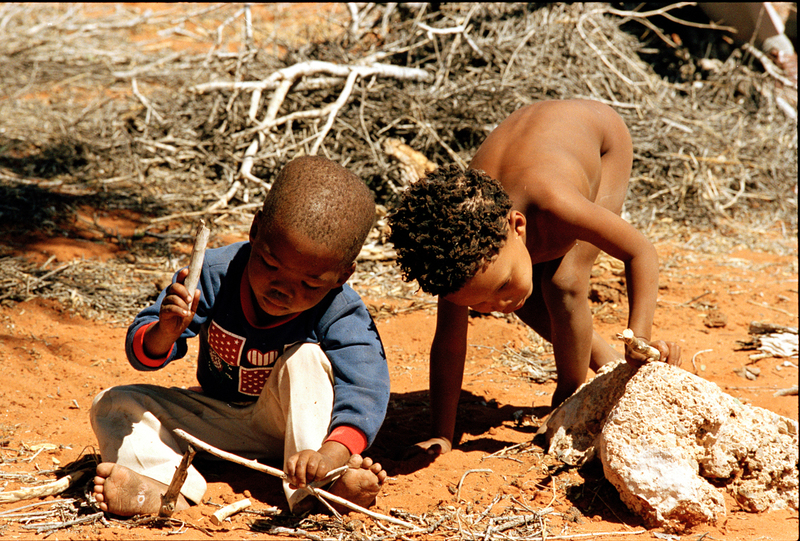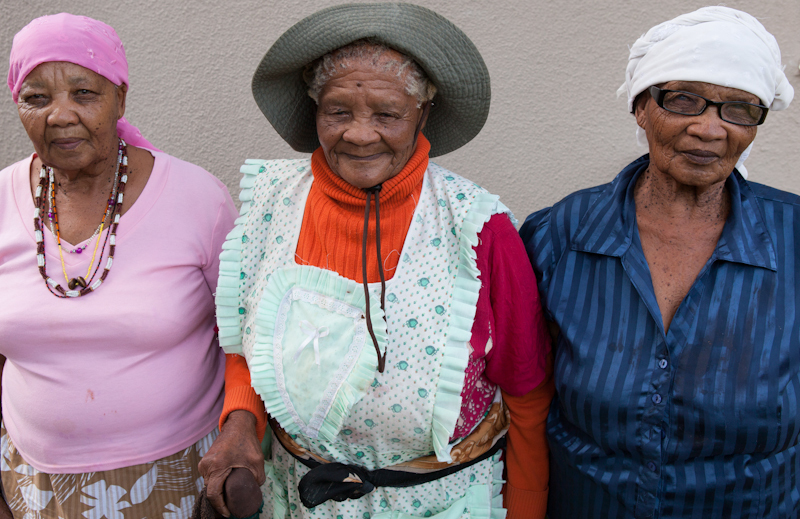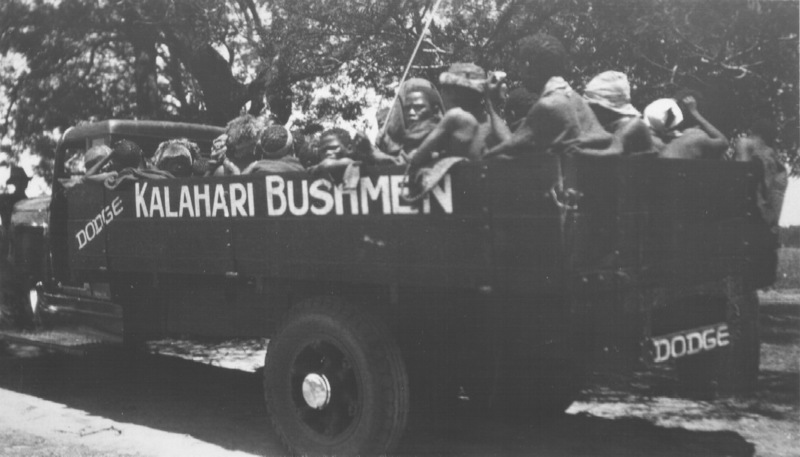THE PEOPLE AND THEIR ANCESTRAL LANDS
The ǂKhomani are among the first known people to live in the southern region of the Kalahari Desert. They have lived as hunters and gatherers in this immense sandy savannah for generations. The Kalahari landscape in the northwest corner of South Africa, is a land rich in wildlife, plants, rolling sand dunes, dry riverbeds and clear night skies.
THEIR STORIES
When the ǂKhomani shared their stories, they unpacked a detailed account of dispossession from their lands, scattering of their people, erasure of their way of life and the disappearance of their language. To speak of their past was to search in memory for all that was taken from them in the colonial, apartheid and post-apartheid era. After a successful land claim, they also told stories of reclamation of culture, recovery of lands, revival of their language and even rejuvenation of memory itself. They told stories of the struggles to emerge from the immense losses of the past, and moved into a new era with an empowered narrative for the future of their children.
MEDIA

Photographs
This digital archive contains over 1000 images of the ǂKhomani people spanning over 120 years from the Kalahari to Kagga Kamma and back again.

Maps and Posters
Traditional place names and places of cultural significance were documented collaboratively between ǂKhomani community members and cartographers to prove ancestral knowledge. COMING SOON.

Video clips and transcript files
Verbatim transcriptions of histories and stories told in Nǀuu, Nama, Kora and Afrikaans were translated into English by linguists for the prosperity of these endangered narratives. COMING SOON.
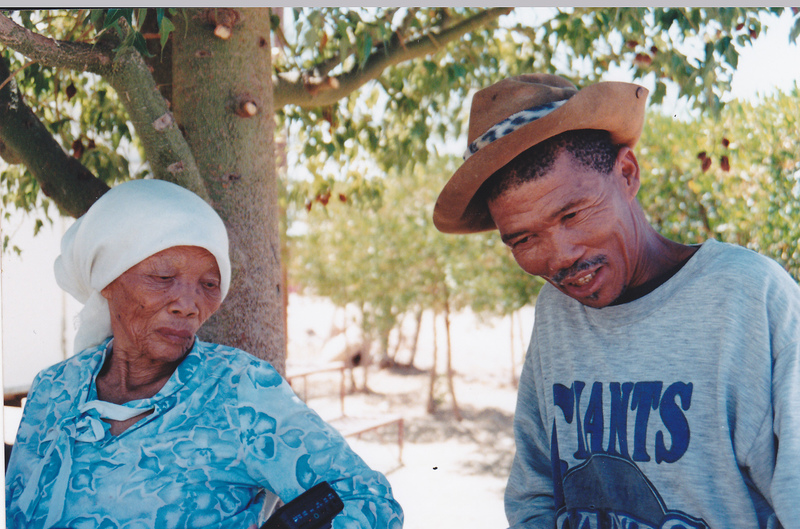
Audio clips and transcript files
Audio clips were transcribed and translated from Nǀuu, Nama and Afrikaans into English by linguists in order to capture these rare stories and make them more accessible to others. COMING SOON.
THEIR ARCHIVE
This archive holds these emotive stories, and is testament to the ǂKhomani people’s determination to know, to share and to secure for prosperity what was so nearly entirely lost. The documentation of these narratives transformed the intangible into the tangible. First created in support of a series of films called Tracks Across Sand, the physical archive was initially housed abroad for safekeeping. It is now held at University of Cape Town Libraries, Special Collections and has since been digitised to facilitate greater accessibility for all.
This archive holds all the materials that were generated over 15 years of work with the ǂKhomani of the southern Kalahari by various researchers. This journey began with the research that was required to file a land claim, which was granted in 1999. Thereafter, as part of a UNESCO Cultural Heritage Audit, detailed research continued, producing a series of oral history records, detailed local maps, and various film projects up to 2012. The physical archive includes over 130 hours of original film, more than 1300 photographs, detailed local maps, GIS (geographic information system) databases, family trees and transcripts of oral history collected in four different languages (Nǀuu, Nama, Kora and Afrikaans). The digital archive hosted here on Ibali holds a digitised version of the physical archive to facilitate access to this large and extensively rich resource.
EXPLORE
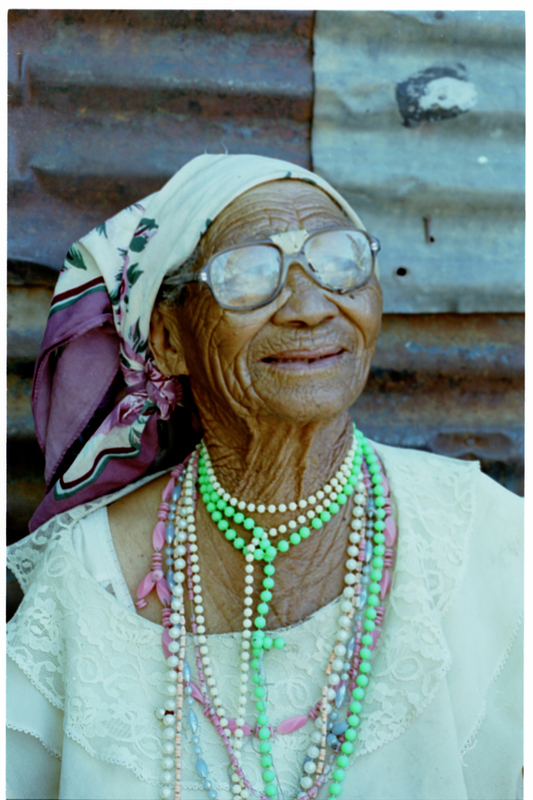
People
The names mentioned on this list are residents of the southern Kalahari, both past and present, as well as researchers who worked with them.
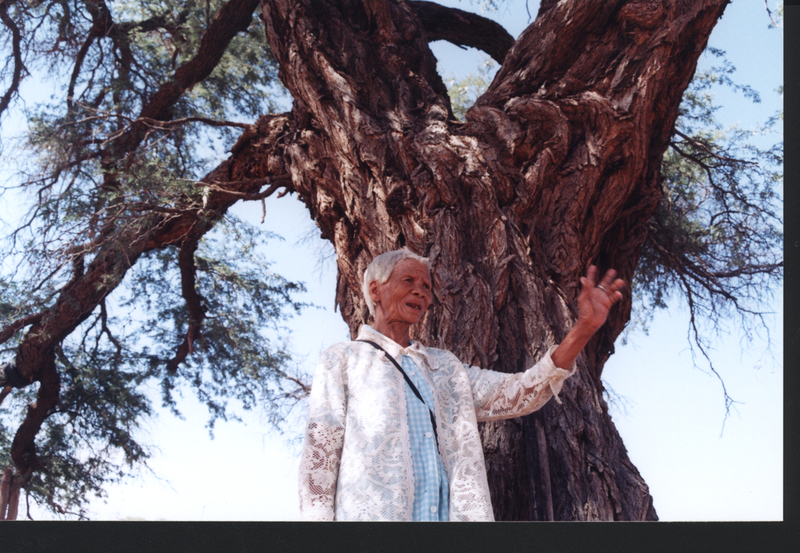
Places
The place names provided on this list are as told by the ǂKhomani people, as well as multiple versions thereof (depending on the speakers' mother tongue). These have been georeferenced (mapped) using GIS.
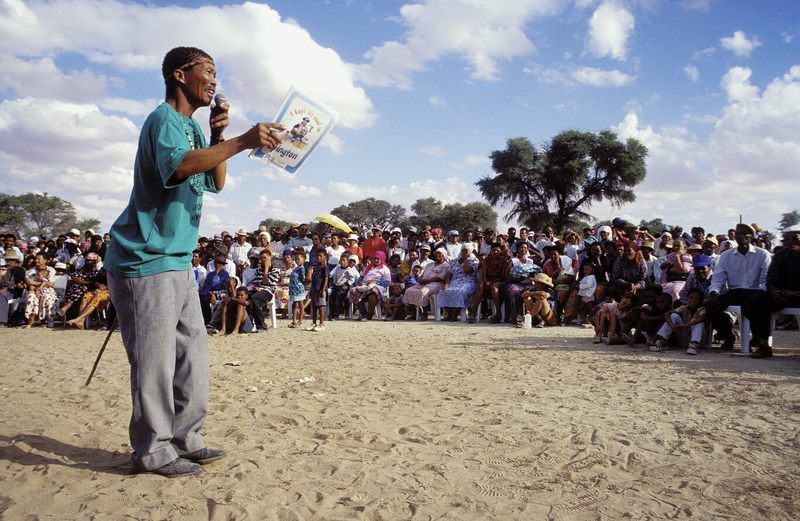
Keywords
Keywords or terms that can be used as points of interest are provided for this digital archive.


